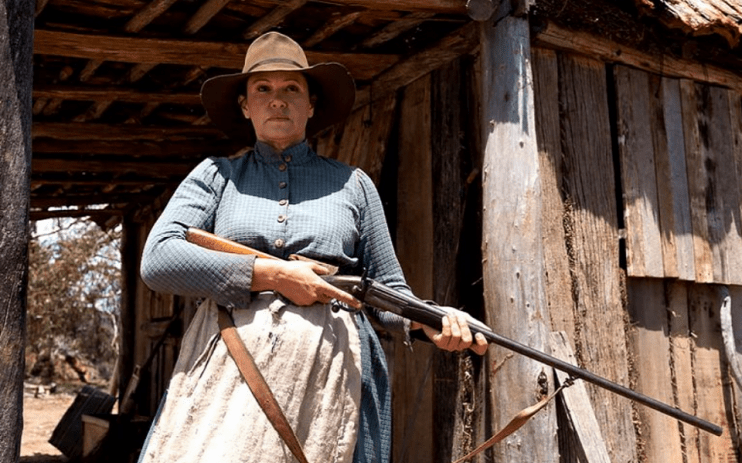The Drover’s Wife review: Glosses over the difficult past of a nation

With The Drover’s Wife, director and star Leah Purcell brings her third adaptation of the Henry Lawson short story, having written a play and a novel on the same subject. As with the other two pieces, this film version fleshes out the narrative, giving the title character a name (Molly Johnson), and shining a light on Australia’s difficult past.
Purcell herself plays Molly, a tough mother of four living in the Outback in the 1890s. Heavily pregnant with another child, she guards the homestead while her husband is away for long periods, and proves a formidable force to anyone foolish enough to cross her. As she welcomes Yadaka (Rob Collins), an Aboriginal man on the run from the law, into her protected world, the many dangers to her way of life begin to rear their heads.
Lawson’s short story is a celebrated traditional tale Down Under, one that highlights the resilience of those making a way for themselves in rural communities. However, it does (as most nationalist tales do), gloss over the difficult past of the nation, and the struggles both women and indigenous communities faced.
Purcell rewrites the story here, using it as a canvas on which to paint a more accurate picture of the country’s history. It’s not exactly delicate though – both the dialogue and characters can be broadly drawn and hammer home points that would be better implied.
Where it does excel is in Purcell’s direction and performance. She knows who she wants Molly to be, and the lessons taught to the nearby privileged townsfolk are delivered with stinging urgency. She also has a familiarity with the location, showing landscapes in a light that gives the story a grand scale. The Drover’s Wife is not subtle, but it feels like an important work as society views history with a wider lens. Purcell is a director with something to say, and that’s always worth turning up for.
The Drover’s Wife is playing at cinemas nationwide now